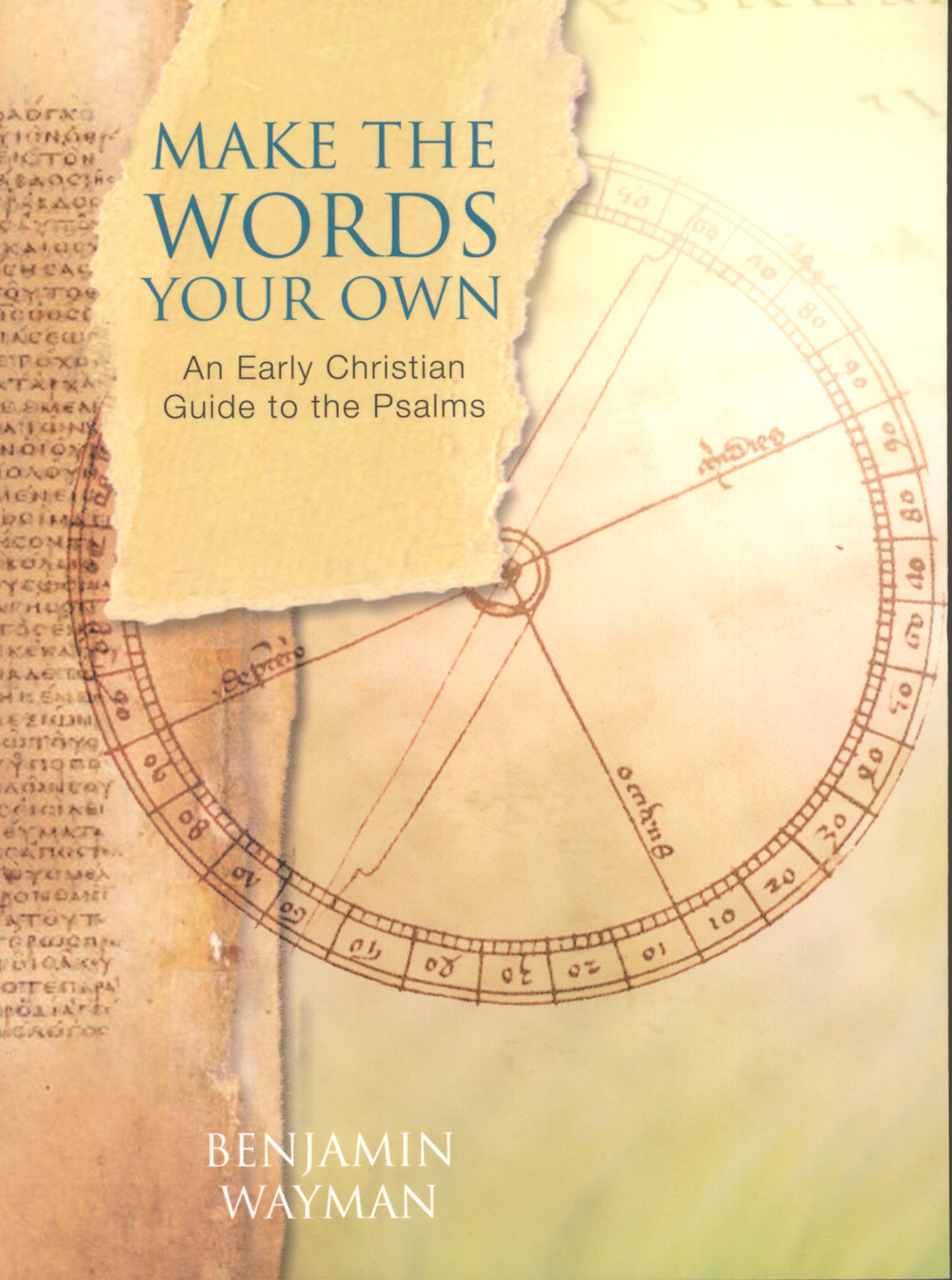Make the Words Your Own: GC Professor Benjamin Wayman Publishes Guide to the Psalms
Published: April 13, 2021
 Though tragedy may leave us wallowing in a pool of helplessness, diverting our attention to action can bring relief. Screenwriters know this.
Though tragedy may leave us wallowing in a pool of helplessness, diverting our attention to action can bring relief. Screenwriters know this.
- In the film Out of Africa, coffee plantation owner and baroness Karen Blixen is devastated by a loved ones betrayal. Grieving the death of a relationship, she grabs her wide-brimmed hat and heads to the fields where laborers harvest beans. Give me work, she tells the overseer.
- In Sense and Sensibility, Colonel Brandon stands by helplessly as a life-threatening fever overtakes the woman he loves. What can I do? he cries to her caregiver. Give me an occupation, or I shall run mad!
Ben Waymans new book, Make the Words Your Own: An Early Christian Guide to the Psalms (Paraclete Press, 2014) fills Brandons request by turning helplessness into purpose. Like Blixens overseer, it gives us an effective and immediate action, something to do.
Read, say, repeat, singWayman accomplishes this by recreating the instructions of Athanasius, the great Alexandrian bishop, whose gentle advice on how to pray the Psalms has guided generations of Christians to more effective and more engaging prayer. With Waymans help, the ancient voice of Athanasius finds relevance with a modern audience. Whether we are burdened, like Blixen, with betrayal, or steeped in suffering like Brandon, we too can learn the empowerment of effectively praying the Psalms.
Assistant professor of religion at Greenville College and a pastor, Wayman 02 approaches his subject with a pastors heart. He knows that readers often turn to the Psalms in times of need, so he points them in an immediately helpful direction.
- First, he categorizes the Psalms by need, covering eight needs in all Psalms for Suffering, for the Betrayed, for the Harassed, for the Guilty, for the Thankful, for Reflection, for Instruction and for Daily Life.
- Then, he recommends behaviors that reinforce our reading sometimes singing the psalm, sometimes repeating it aloud, saying it to others or as with Psalm 137, a psalm for the guilty weeping as we say it. The actions help us own the words.
As Stanley Hauerwas observes in the books foreword, By the singing of the words, we become what we sing. We become what we sing because the Psalms do not so much give voice to what we are, but rather, they make us who we were created to be.
Here lies the indispensible gift of the Psalms: not only do the Psalms give us something to do, but also they form us into the people we were made to be. Wayman reminds us that the Psalms are the prayer book of the church. In them, the movements of the human heart find their deepest expression.
But that is not all; they are also the prayers that Jesus owned.
Jesus prayed the PsalmsWhat could Jesus possibly say from the cross when sin, death, and the devil came crashing down on him like a tidal wave? asks Wayman. The answer? Psalm 22.
Jesus, having sung the Psalms over the course of a lifetime, had just the words for his despair from the cross.
The image reminds us that when we pray the Psalms, we imitate Christ. His words and life become our own. Likewise, Wayman and Athanasius remind us that though tragedy leaves us wringing our hands in helpless despair, we unleash hope when we make the words our own.
To read more about Make the Words Your Own: An Early Christian Guide to the Psalms visit the Free Methodist Church USA website.
Click here to read Bens article Why Christians Should Read (Sing) the Psalms.
